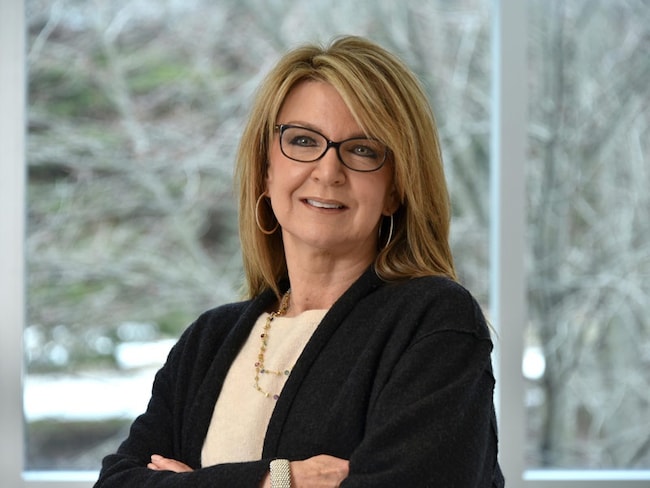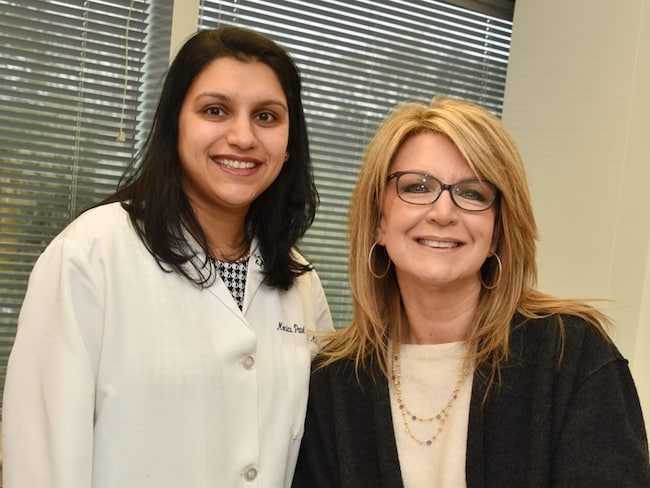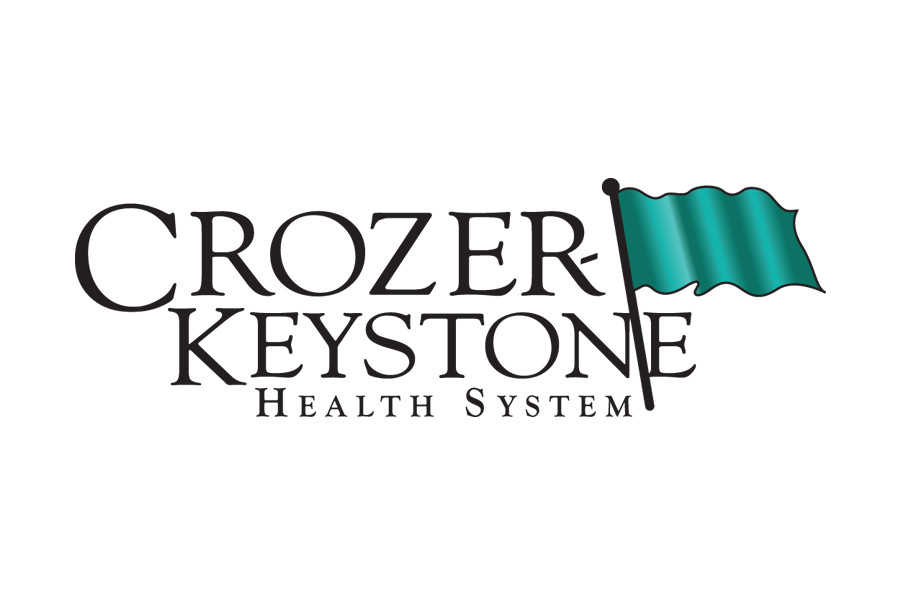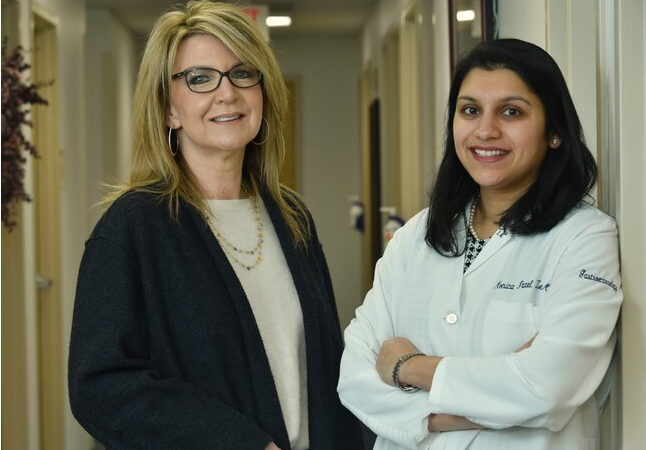Colon cancer, or colorectal cancer, is the country’s second-leading cause of cancer-related deaths. Over 50,000 people are expected to die of the disease this year.
Despite the grave numbers, colon cancer is also the most preventable form of cancer. Fightcolorectalcancer.org states that 60 percent of the deaths can be avoided with screenings.
For Christine Krigelman, a screening may have been the difference between life and death.
A warning sign
Just before Thanksgiving in 2015, Krigelman wasn’t feeling great. For someone that worked out and ate well regularly, she was feeling bloated and groggy, but could not figure out why. The Chester County resident felt uneasy about her discomfort, but not worried.
One day, she happened to look in the toilet after she used the bathroom. She knew right then and there that it was time to see a doctor.
“When I went to the bathroom I noticed there was some blood on my stool,” Krigelman said. “It concerned me, I had never seen that before. I decided to make an appointment with the gastroenterologist right away.”
Her friends thought the blood could be coming from hemorrhoids, which is possible and usually the first thing that comes to mind. But Krigelman disregarded this notion and called Monica Patel Zeitz, M.D., who specializes in gastroenterology at Crozer-Keystone Health System. Zeitz said that Krigelman was prudent to come in right away for her colonoscopy when she had non-specific symptoms, rather than push it off.
“If you do have symptoms, such as blood in the stool, or changes in bowel habits, you should definitely discuss this with your physician,” Zeitz said. She added that the danger of colon cancer is that, many times, patients report no symptoms at all, so getting a screening colonoscopy at age 50 regardless of the presence of symptoms is important.
“One of the most important things you can do to reduce your risk of colon cancer is to get a colonoscopy,” Zeitz added. “Additionally a high-fiber diet, regular exercise, and avoiding tobacco and obesity can reduce your risk.”
So Krigelman, 51 at the time, went for her colonoscopy. Zeitz said when she does the procedure she is looking for polyps, which are usually harmless but can turn cancerous over time.
“When I woke up from the colonoscopy, [Zeitz] was standing next to my bed and said that I had a mass in my colon,” Krigelman said. “They biopsied it, but she was sure it was cancer, and of course, it was.”
The diagnosis: stage 2 colon cancer.
The plan of action
When Zeitz explained the diagnosis to Krigelman, she knew exactly what to do next. Krigelman relied on her network of doctors at Crozer-Keystone for a plan of action.
“I said to her ‘please just tell me what to do, who to go to’ and she set me up with a great surgeon,” Krigelman said.
But that doesn’t mean it didn’t weigh on her mind.
”It’s scary,” Krigelman said. “It’s not in the family and I was young. But it’s scary.”
Krigelman met with Taro Arai, M.D., Crozer-Keystone colorectal surgeon. She said he stayed in his office to explain everything to her well after his scheduled hours, and wanted to get her into surgery as soon as possible.
“I was in his office for probably two hours and he explained everything he was going to do,” Krigelman recalled.
Fortunately for Krigelman, her cancer had not spread to the liver, so Arai thought they could take care of the problem with surgery alone if they acted fast.
Krigelman went in for surgery a few days before Christmas of 2015. She said Arai took “six or seven” inches from her lower colon to remove the mass and perform the resection. Less than a month had passed between the initial diagnosis and surgery, which Krigelman credits to the quick turnaround by her Crozer-Keystone doctors.
“The minute a person is told they have a cancerous polyp, their anxiety level is heightened,” Zeitz said. “The quicker we have that follow-up visit with them, the better, because as a patient it is a scary time. Even though colon cancer is slow growing, you want to get it dealt with and taken care of. Delays in care can cause the cancer to spread. What could have been an early stage cancer curable by surgery could then require additional treatments, such as chemotherapy, and decrease survival.
“The doctors were great,” Krigelman added. “The communication, everyone was so attentive. It was a great team.”

The hassle is worth it
Because of Krigelman’s and Crozer-Keystone’s swift action, the cancer was efficiently removed and she did not need chemotherapy or radiation. Krigelman is now cancer-free; she has a checkup every three months and receives regular colonoscopies.
She lives her regular life as a esthetician in a beauty salon, but more than that, is a walking billboard for preventive colon cancer screenings.
“You’d be surprised how many people are going to get their colonoscopy because of me,” Krigelman said.
Her friends, family and colleagues have committed to getting checked routinely. While the procedure has a reputation for being unpleasant, Krigelman tells them that the small hassle is worth it for the peace of mind.
“It’s not a hard test at all,” she said. “It’s quick and easy. The hardest part is the prepping the day prior but it’s really not so bad.”
According to Zeitz, about 20 percent of women and 30 percent of men have a polyp. Most of them don’t have symptoms or a family history of colon cancer. That’s why screening is so important.
“One of the reasons people put it off is because of the bowel prep. I get it, we’re all busy,” Zeitz added. “However, if one day of inconvenience with a bowel prep and colonoscopy can prevent you from developing colon cancer and add many more years to your life, it is well worth it.”

Looking toward the future
Krigelman gained back years of her life, thanks to her decision to get a colonoscopy and the quick action of her doctors. It’s something that she’s glad she did, but would rather not go through again. That’s why she’ll be getting colonoscopies regularly from now on.
“It wasn’t a happy thing that I had to do, but everyone was great with me. The whole team was great. I would recommend them,” Krigelman said.
If you or someone you know is over age 50 and has yet to get a colonoscopy, visit http://www.crozerkeystone.org for more information on why you should, and how to schedule one.

